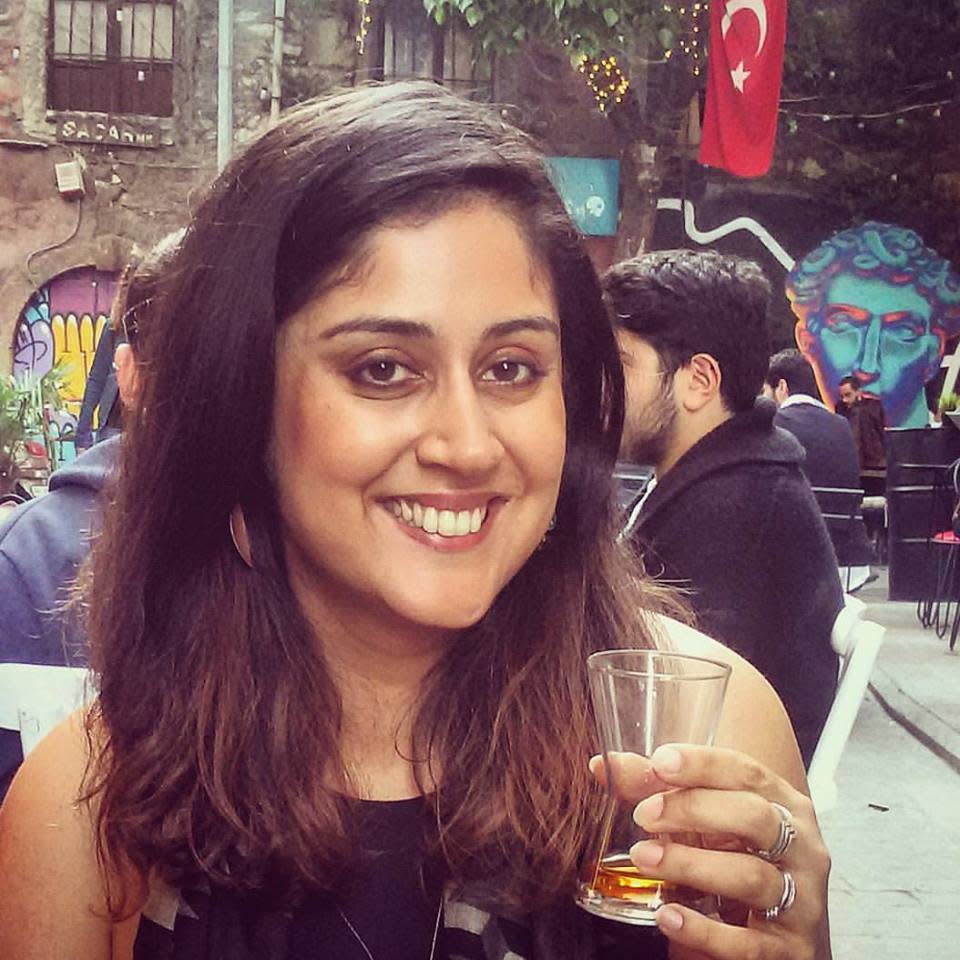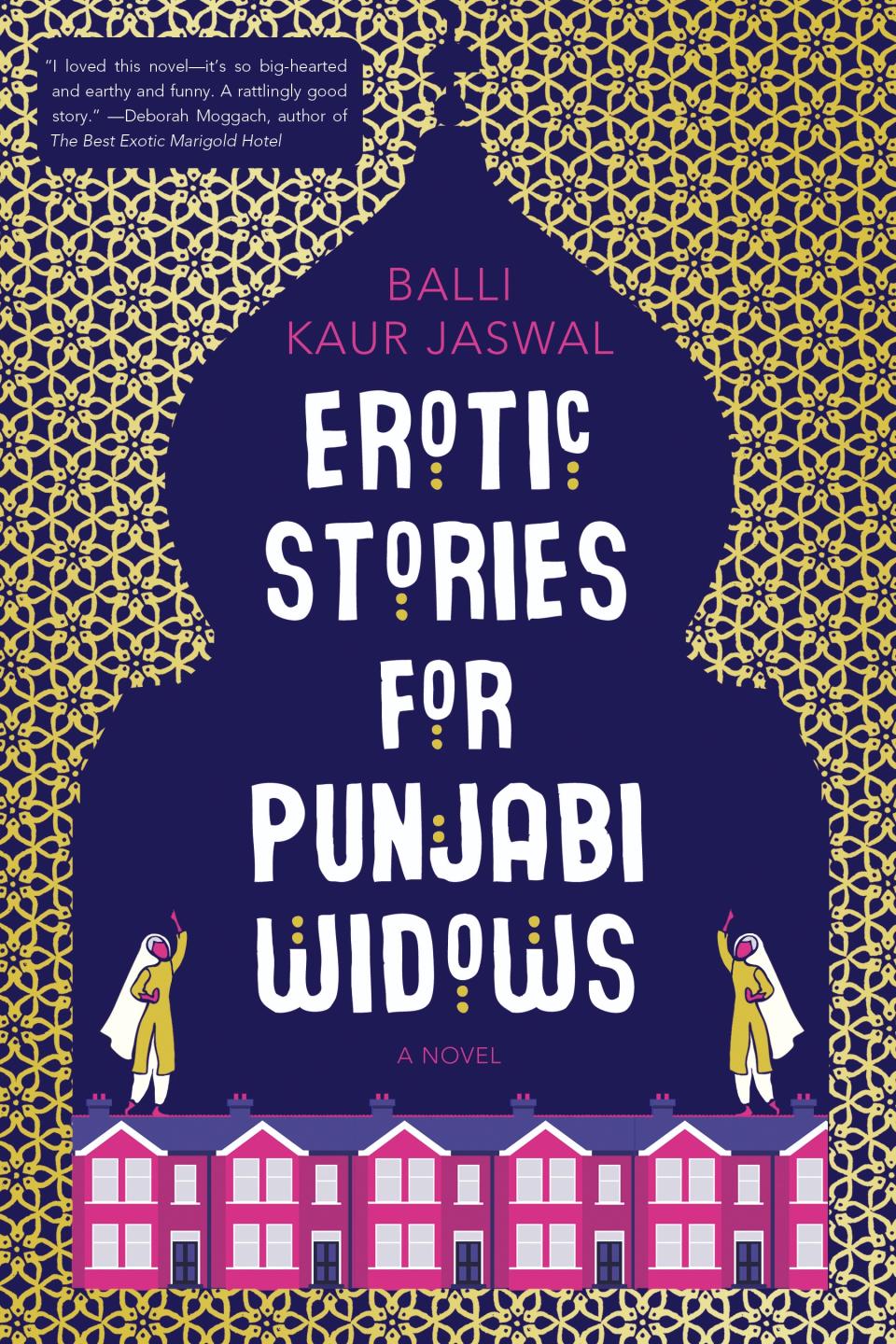How a Full Body Wax Helped Me Feel at Home


I moved to Turkey in 2015 to teach English in an international school after tiring of my teaching job in the suburbs of Melbourne, Australia. I tend to settle into routines quickly in new places but I spent five months in Istanbul before visiting a waxing salon, something I scheduled for the first Saturday of each month while in Melbourne. In hairy-girl years, that’s close to a decade. Sure, I made do at home with Veet strips and a razor, but there’s a difference between attacking overgrown shrubs with gardening shears and hiring a heavy-duty weed-whacker. My legs, arms, back, and bikini area needed professional intervention.
Growing up Indian in Singapore, excess hair was another inconvenience of belonging to an ethnic minority, making me stand out when all I wanted to do was fit in. “Nair cream” and “eyebrow threading” were probably my first words, and any cash my grandmother gave me for birthdays went straight into my secret electrolysis fund. I started removing hair as soon as I was allowed to, around the age of 12.
If hair removal was a niche grooming habit in Singapore, it was a full-blown covert operation at the women’s college I attended in the U.S. Many friends considered leg-shaving and armpit waxing as trappings of the patriarchy, and while I agreed in theory, I noticed that the most vocal proponents were also naturally endowed with downy golden hair that actually gave their legs a halo. Talk to me when you’re plucking gnarly pube-like growths from your knuckles, I thought as I stole off to the salon.
Language was the reason I had put off a salon visit for so long in Turkey. Since arriving, I found myself dreading simple errands like visiting the bank or going to the butcher, because with limited language skills, I was a different person. I was reminded of a former student from South Korea who once confided that moving to Australia had changed her identity. I thought she was referring to adopting certain Australian cultural mannerisms but then she said, “In Korean, I am funny. In English, I am not.”
I hadn’t fully grasped how much of my identity depended on my ability to communicate.
Until language was taken away from me, I hadn’t fully grasped how much of my identity depended on my ability to communicate. In English, I was approachable and confident. I was happy to make small talk or give directions. I spoke up if treated unfairly. In Turkish, I was standoffish, shy, and easily taken advantage of. I shrugged off the friendly ladies at the bus stop who tried to chat with me. When a man cut in front of me in line at the grocery store, I allowed it. A taxi driver once left the meter from his previous passenger running so I had to pay double the fare - something I normally would protest, but without the right vocabulary, what can you do except pay up while wagging your finger in the universal gesture of “I know what you’re up to, mister!”
I was learning Turkish and picking it up wherever I could, but explaining how you like your bikini wax isn’t usually covered in textbooks. I felt exposed and vulnerable enough without seeking another uncomfortable interaction, particularly one that was so intimate. However, the hair had to go. While I respect every woman’s choice to decide what to do with her body hair, waxing was too essential to my personal grooming regimen to stop.
“Ask for a komple ağda,” my bilingual Turkish friend advised. “That’s a full body wax, everything from the neck down. Then you don’t have to specify anything.” Although I dreaded the thought of spending more time than necessary on this errand, she made a good point. I’d gladly have it all ripped off if it meant I didn’t have to discuss it.
After work one day, I wandered around my neighborhood and found a small salon with white doors and two stray cats curled up at the entrance. “Komple ağda?” I nervously asked the woman at the front desk. She nodded and guided me to a flat bed behind a screen. I don’t know why I was surprised when she gestured for me to take off my clothes; I guess I expected that we’d do this thing in stages, and I’d be there for days.

While the wax was being applied, I braced myself for conversation and mentally practiced a few responses: “No, the wax isn’t too hot. Yes, it looks like it might snow soon.” But there was no attempt at small talk to allay the awkwardness of this situation. There was also very little secrecy. I heard women come in to the salon and ask quite loudly for their own komple ağda.
In every other place I had lived, a first salon visit was intimidating. I’d duck into a room full of blessedly smooth women getting their nails done and scan the items under “waxing” on the menu. If it didn’t include “back” or “feet,” I’d hurry away to avoid the humiliation of being the first person at the salon to ask for a toe wax.
I discovered that removing excess hair in Turkey was a routine practice. The stripping was rapid, and if I winced or said “ouch,” the woman never paused. “It’s a collective pain, something we’re all used to because we’ve been doing this every month since age 13,” my friend explained to me later. In other words, get over it. There was no need for introspection, apologies, or shame. This was my first time living in a country where hair removal was a fact of life for many people, and not associated with assimilation or extreme vanity.
The weightlessness that I felt after leaving the salon that day wasn’t just about having less hair on my body. It was the same thrill I got from recognizing a Turkish phrase or responding appropriately to a greeting. Of all things, waxing offered my surest path to belonging in a foreign country. After months of tight-lipped nodding and never finding the right words, here was a language I could speak fluently. The shift was probably imperceptible to others but I sensed my old self returning. When strangers made small talk, I responded that I was still learning Turkish, and instead of ending the conversation, it began a new one: “Where are you from?” they asked. “What do you do here?” They always wanted to know if I liked Istanbul, to which I replied, in all honesty, “I love it.”

Balli Kaur Jaswal is the author of three novels, including Erotic Stories for Punjabi Widows, available now. She is currently working on a fourth novel about three sisters who go on a pilgrimage to India to reconnect with each other after their mother’s death.
You Might Also Like

